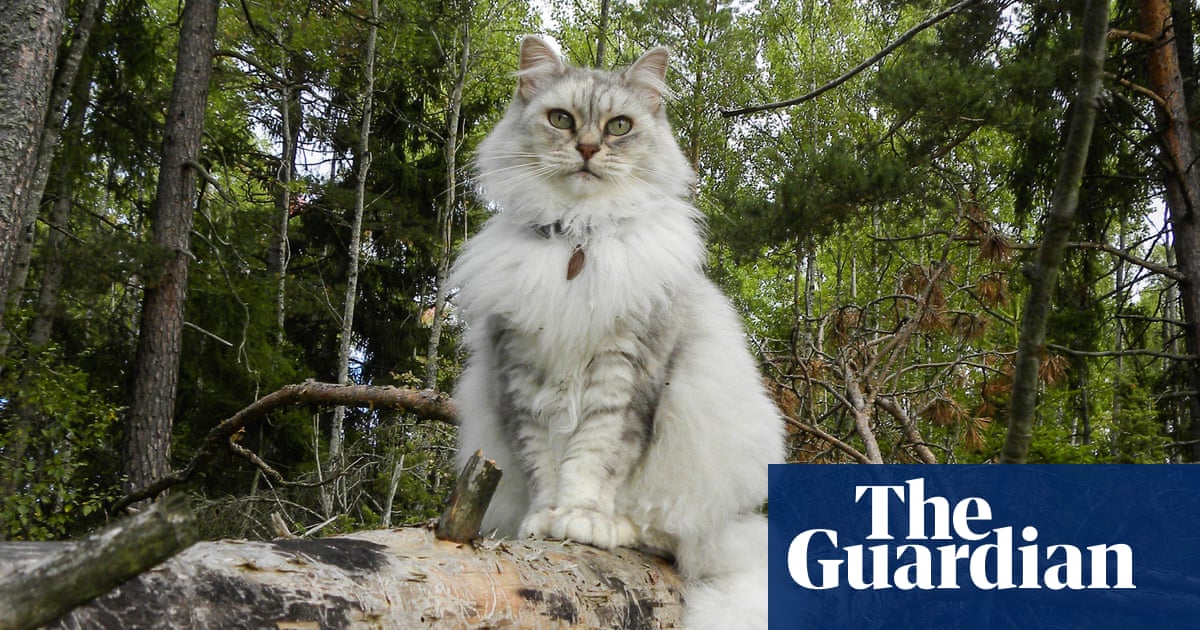In this exquisite book novelist Caleb Carr tells the story of the “shared existence” he enjoyed for 17 years with his beloved cat, Masha. At the time of writing she is gone, he is going, and all that remains is to explain how they made each other’s difficult lives bearable. The result is not just a lyrical double biography of man and cat but a wider philosophical inquiry into our moral failures towards a species which, cute internet memes notwithstanding, continues to get a raw deal.
Carr explains how Masha picked him as her person when he first visited the animal rescue centre nearly 20 years ago. She was a Siberian forest cat – huge, nearer to her wild self than most domestic moggies, and utterly delightful, a long-bodied streak of red-gold whose forward-facing eyes gave her the look of a delighted baby. The rescue centre staff are desperate that Carr take her, and equally anxious that he should understand what he is getting into. This cat, apparently, fights, bites and is unbothered about seeming grateful. But then, why should she be? Abandoned by her previous owners, she was locked in an apartment and left to die. It is an obscenity, says Carr, that goes on more often than we can bear to imagine.
Once Carr gets Masha – a name he hopes sounds vaguely Siberian – home to his farmhouse on Misery Mountain in upstate New York, she starts to show her true “wilding” nature. Mice and voles are taken down with industrial efficiency. She even sees off a bear, dispatching it with a bloody nose. The only creature that gets the better of her is a wicked kind of weasel native to the area called a “fisher” which bites off her luscious tail and leaves her less nimble for the closing part of her life.
With Carr, though, Masha shows a different side. She is not a lap cat in any sense, but something better, an actively attentive partner. When Carr is racked with pain from his chronic neuropathy, Masha bores her broad Siberian forehead into his clenched body to release the agony. Or she sits by his head for hours at a time, looking anxiously for signs that the discomfort might be easing. “What will cynics call this,” Carr asks rhetorically, “if they will not call it love?” In return he makes her mixtapes of her favourite music, mostly Wagner. And, to help her through the August moon, a time when all cats in the American north-east long to stay outdoors all night, he sets up a halfway house for them on the porch with blankets, camping lights and a television, so that they can get through the high summer madness safely together.
There had been plenty of previous cats in Carr’s life, a succession of spirit animals who accompanied him as he grew up in a household that sounds frankly feral. His father was best friends with Kerouac, Ginsberg and Burroughs. Lucien Carr, who was prodigiously clever, madly violent and free with his fists, battered his middle son into profound anti-sociability. Caleb explains how he has spent most of his adult life dealing with these accumulated wounds – a fractured body with a cats’ cradle of internal adhesions, and an inability to hang on to a romantic relationship for more than a few months. Masha is the salve for this lifetime of self-loathing: “how I lived, what I chose to do, my very nature – all were good enough for her.”
The question of anthropomorphism inevitably raises its head. Carr tetchily denies it, maintaining that everything wondrous about Masha – her emotional receptivity, careful social etiquette, even her tactical stealing of visitors’ socks – can be explained as intentional either by the growing academic literature on animal consciousness or the close observations of her clever vets. Altogether more plausible is his suggestion that it is Masha who is doing a kind of anthropomorphism in reverse, ascribing traits of her own species to Carr in order to make his behaviour comprehensible.
By the end, though, it barely matters. Carr has become so enmeshed with Masha that it is getting hard to tell them apart. When she is diagnosed with terminal lymphoma you know that it will not be long before he follows. And, indeed, in May this year Caleb Carr died of cancer at the age of 68. He has left behind a beautiful book, one of the finest meditations on animal companionship that I have ever read.
after newsletter promotion
